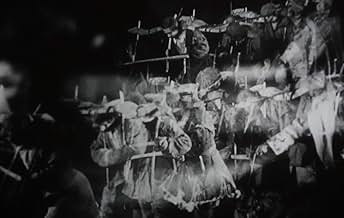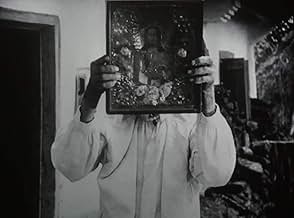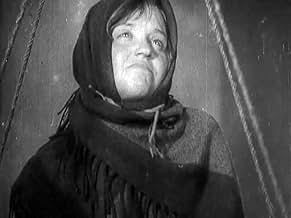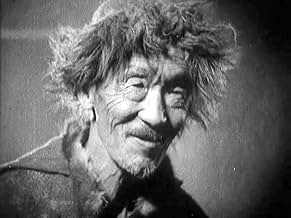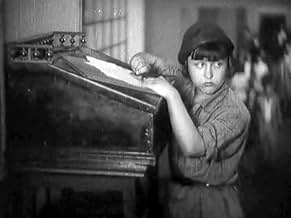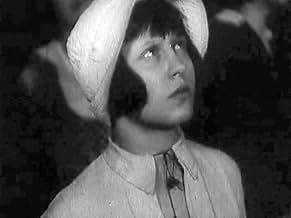The story of a newly graduated Leningrad teacher, Yelena Kuzmina. She goes furniture shopping with her fiance, Petya, and in a fantasy sequence she imagines teaching a class of neat, obedien... Read allThe story of a newly graduated Leningrad teacher, Yelena Kuzmina. She goes furniture shopping with her fiance, Petya, and in a fantasy sequence she imagines teaching a class of neat, obedient city schoolchildren. Instead, she is assigned to work in the Altai mountains of Siberia.The story of a newly graduated Leningrad teacher, Yelena Kuzmina. She goes furniture shopping with her fiance, Petya, and in a fantasy sequence she imagines teaching a class of neat, obedient city schoolchildren. Instead, she is assigned to work in the Altai mountains of Siberia.
- Directors
- Writers
- Stars
- Awards
- 1 nomination total
- Directors
- Writers
- All cast & crew
- Production, box office & more at IMDbPro
Featured reviews
The soundtrack is weird.Sometimes,the words are sung,which makes the movie look like a musicals,some lines are spoken,a curious hodgepodge. Besides a big part of the movie is lacking,probably lost forever ,and the scenes when the schoolteacher is lost in the cold are replaced by lines which tell the missing passage.
All in all,I think this movie is rather cold,in every sense of the world,in spite of a promising start.
In this Herr Kozintsev and Herr Trauberg's work are depicted the contradictions, the big differences between the city and the isolated towns of the vast U.S.S.R., the old and new ( as Herr Eisenstein said some years before ), Kuzmina's modern spirit full of initiative ( it's very interesting and even curious to watch in the film how Kuzmina rebels against the fact that she has been posted to such a far away place, even defying the authorities for their designation, a strange criticism in this film against the Soviet authorities, although finally that subject is solved by the young schoolteacher's patriotism, deciding her sacrifice takes priority over her suspicious individualism ) against the ancient customs of the Altai region, where Kuzmina will find selfishness, corruption and loneliness.
The main character of the film will also fight against the local soviet ( even the Bolshevist chiefs are fond of bribery ), denouncing the injustices that are committed in the town, trying to open the villagers' eyes to such abuse of authority. This time Kuzmina rebels herself ( and the villagers ) against the people and ideas that don't make possible the building of a new socialist country -- communist propaganda, it's true, but very well exposed in the film.
"Odna" is a hybrid of silent film and talkie; Herr Shostakovich composed a score for the film, a synchronized film full of different sounds that stimulate the story, a film that is unfortunately missing a reel ( the episode in where Kuzmina is left to die in the vast Siberia ) which is compensated with explaining subtitles.
"Odna" is for many reasons not an easy or acquiescent film ( it was strongly criticized ); certainly it was impossible at that time to make a film in the U.S.S.R. questioning the communist regime; but a certain air of liberty, disobedience and non conformism flies over the film, achieving finally a singular film, a Russian oddity.
And now, if you'll allow me, I must temporarily take my leave because this German Count must rant about the virtues of the aristocratic regime.
Normally, a review relates to an experience that can be shared subsequently by any cinema-goer, or watcher of DVDs. A live concert performance (the BBC Symphony Orchesttra conducted by Mark Fitz-Gerald) is different. The entire orchestral performance and live sound effects such as the throat singer, Theramin and Harmonium will not be constant factors - which is why performances of great musical works are reviewed repeatedly. The performance I experienced may be different from what you experience. For me, what might have been a rather sentimental ending was transformed by the 'buzz' of the live musical climax (the entire restored score was performed, with titles explaining the action of the missing reel).
A notable feature of the film was the superb natural performance of the 'actors' (including a real shaman performing a real ritual) with none of the exaggerated eye makeup of 'Napoleon' and the German expressionists. Such a live performance converted a good propaganda film into something more sublime and an experience that should not be missed if the opportunity is repeated.
Did you know
- TriviaOn the sound track there is "throat singing" at the point where the action shifts from the city to the Altai region. Also, later, authentic images and sounds of a shaman dancing, singing, and beating a drum to heal a sick woman.
- ConnectionsFeatured in Fejezetek a film történetéböl: A szovjet hangosfilm 1930-1953 (1990)
Details
- Runtime1 hour 30 minutes
- Color
- Sound mix
- Aspect ratio
- 1.33 : 1
Contribute to this page


